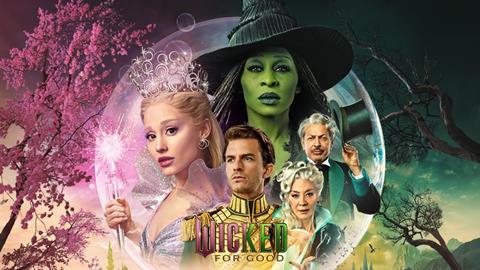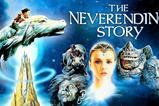Wicked: For Good hits our cinemas this coming weekend. Michael J Tinker takes a look at the song that closes out the film and suggests reflections on relationships and identity for Christian families

As Christians we often bemoan the me-centred culture of the 21st century West and with good reason. For so long we have been told that rather than being defined by our relationships with those around us we define ourselves in whatever way we choose. To be defined by others is somehow being inauthentic, denying our very selves. It is an entirely self-centred way of understanding ourselves.
But recently I think we’ve started to see this view unravel because, quite simply, it doesn’t work. It has led to so much confusion about identity as we’re left scrabbling around trying to figure it out in isolation. Recently we have seen an increased interest in faith in younger generations - this is possibly due to people wanting to feel connected to something (and to people) - a conneection that is deep, meaningful and has history and a story. We know we are not meant to live in isolation either physically or philosophically.
Art has a way of prophetically challenging a culture and speaking to the very core of ourselves - even art made by those who don’t know Jesus
This is not a surprise as the Bible makes it clear that what makes us who we are, indeed what makes us unique individuals, is our relationships to each other and to God. We are defined by our relationship first and foremost to Christ. If we’re trusting him we’re adopted into a family. Who we are is now part of a body and a people, gathered around Jesus. We are relational beings, purposed to be in good relationship with each other and our maker.
Which brings me to Wicked, and more specifically the song ‘For Good’. The show was first performed in 2003 and it continues to hold captive audiences in theatres and now the cinema. I think it’s fascinating that it has spanned these turbulent two decades and perhaps that’s because it speaks to this fundamental truth that our relationships shape and define us.
‘For Good’ is a duet sung between Elphaba and Glinda. Elphaba has this final musical conversation with her once protagonist, now friend, Glinda. When she first met Elphaba, Glinda had set about the task of transforming her into the belle of the ball. Glinda was the socialite, top of the pile and felt she could give something to Elphaba to help her. She saw the relationship as entirely one way, benefactor to beneficiary. There seemed little genuine love that drove this benevolence - it was more an arrogant pity bestowed on an apparently hapless young witch. Glinda didn’t need Elphaba’s help - Elphaba needed hers.
But at the end of the story Glinda sings:
I’ve heard it said
That people come into our lives
For a reason
Bringing something we must learn
And we are led
To those who help us most to grow
If we let them
And we help them in return
I know I’m who I am today
Because I knew you
Glinda’s view of herself has been transformed. Far from defining herself with everyone below her, bestowing her charity on others, Glinda realises that she has in fact been changed by Elphaba. Glinda isn’t a person defined in isolation, she is who she is because of someone else.
Elphaba also recognises this as she declares:
So much of me
Is made of what I learned from you
You’ll be with me
Like a handprint on my heart
And now whatever way our stories end
I know you have re-written mine
By being my friend
Elphaba recognises that she is only who she is today because of Glinda. And that is the same for all of us. We cannot get away from the fact that we are only who we are right now because of all the people we have met along the way.
the Bible has a better story, of a sovereign God working things for the good of those who love him
It is interesting that Elphaba and Glinda put these relationships and the ensuing change down to chance. They compare it to the sun moving a comet that has flown by, a ship changing course because of the wind or a bird dropping a seed in the middle of a wood. These are unfeeling or unconscious forces. But the Bible has a better story, of a sovereign God working things for the good of those who love him, manouvering people and situations to help his people come to him and to grow. An author, if you will (which of course Elphaba and Glinda actually have, being characters in a play!).
Read more:
What The Celebrity Traitors reveals about the human heart — and why Christian parents should care
Sketch is a film that will help Christian families stop and consider their emotions and take them to Jesus
How Taskmaster can inspire your family to celebrate God-given creativity
The word often used for this sovereign care is ‘providence’. As I’ve grown older I’ve been able to see more and more examples of this, tracing the seemingly random meetings or events and how they have totally changed my life - for the better. It was not always obvious that this would be so. I’ve been through some incredibly difficult times which I could not understand at the time. It is only with hindsight that I’ve been able to trace the author’s hand through that story.
Art has a way of prophetically challenging a culture and speaking to the very core of ourselves - even art made by those who don’t know Jesus. We just can’t get away from the fact that we are who we are because of our relationship to others (and ultimately God). And that art will have longevity when other ideas and philosophies fall by the wayside, because it hints at truth we know subconsciously to be so.
Perhaps that’s why Wicked has such longevity.
Because I knew you
I have been changed
For good
Some things to talk about as a family:
- If someone asked you who you are, (after saying your name) how would you describe yourself? How much of that description is about who you have a relationship with?
- Who are the important people to you? How have they changed who you are?
- How can you thank those who have been used by God to change you for good?
- What are some situations that at the time you couldn’t understand why God was putting you through, but later came to understand how he changed you through it?


































